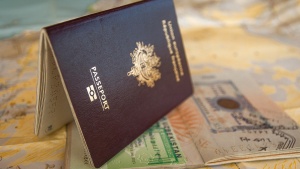Romania and Bulgaria’s Entry into the Schengen Zone in 2024
Starting from March 31, Romania and Bulgaria will officially become part of the Schengen area.
This integration into the Schengen zone facilitates unrestricted movement among member countries for approximately 400 million citizens.
Despite being EU members since 2007, both countries were outside the Schengen’s borderless region until now. Consequently, travelers had to present passports at the entry points.
With the year 2024, the process of border control for these two nations is set to become more streamlined.
Essential Information for Travelers to Romania and Bulgaria Regarding Recent Changes:
Is a Passport Necessary for Entering Romania and Bulgaria?
The integration of Romania and Bulgaria into the Schengen zone this year simplifies travel to these nations.
In December, the interior ministries of both countries announced the removal of certain border controls.
Passengers arriving from other Schengen countries by air or sea into Romania and Bulgaria will no longer need to present passports upon arrival. This exemption applies to individuals on flights, cruises, and ferries, eliminating the need for passport checks.
However, those entering Romania and Bulgaria by road, train, or bus will still require identification documents, as the regulations for land border crossings remain unconfirmed due to Austria’s veto.
The European Council notes on its website that a future decision is necessary to determine a date for the removal of land border controls.
Which European Countries Allow Entry Without a Passport?
Croatia was the most recent nation to join the Schengen zone in 2022.
Annually, the Schengen area sees 1.25 billion trips, with 3.5 million individuals crossing the borders of its member states daily.
Excluding Romania and Bulgaria, the Schengen zone consists of 27 countries. This includes 23 EU member states and four European Free Trade Association associate states: Norway, Iceland, Switzerland, and Liechtenstein.
The Schengen Area, established in 1995, originated from the Schengen Agreement signed a decade earlier by five European Economic Community members: Germany, Belgium, France, Luxembourg, and the Netherlands.
Subsequent agreements led to the 2007 expansion, incorporating nine more countries into the area of free movement.
Non-EU citizens traveling to this region should be aware that time spent in Bulgaria and Romania is included in the Schengen zone’s 90-day limit within any 180-day period.

